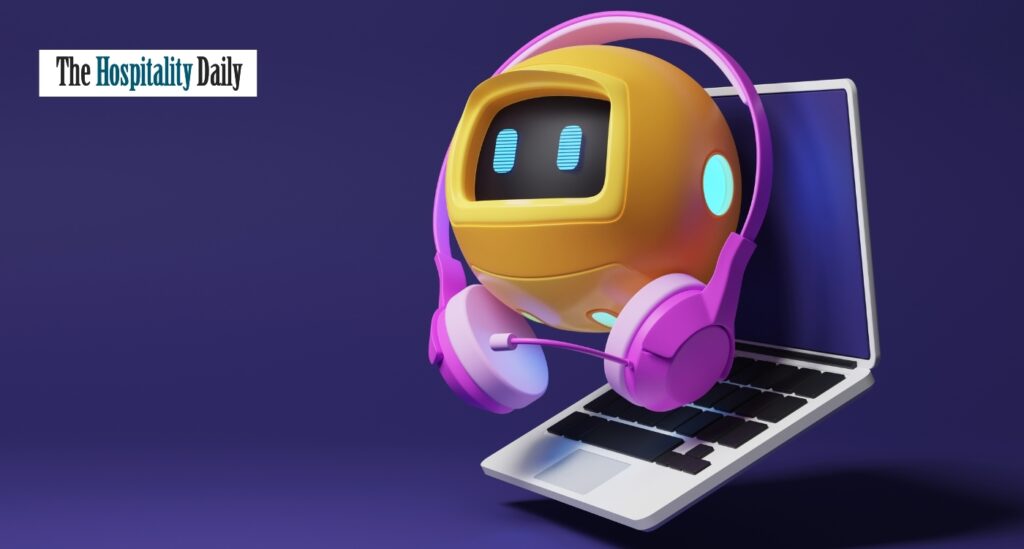The hospitality industry has been undergoing a significant transformation in recent years, largely driven by advancements in technology. From the way guests check in to the services offered during their stay, technology is revolutionizing the hospitality sector in ways previously unimaginable. In this article, we will discuss the various technology in hospitality, which are shaping the hospitality industry, touching upon key areas.
Mobile Check-In
Mobile check-in is becoming increasingly popular in the hospitality industry. it offers guests the convenience of bypassing the front desk and heading straight to their rooms upon arrival. Guests can use their smartphones to check in, receive digital room keys, and even select their room preferences in advance.
Hotels that offer mobile check-in not only provide a seamless and contactless arrival experience but also reduce wait times at the front desk during peak check-in periods.
Virtual Reality as Profound Technology in Hospitality
Virtual reality (VR) technology has found its way into the hospitality industry in the form of virtual tours and immersive experiences. Hotels and resorts are using VR to show their properties and amenities to potential guests.
Prospective visitors nowadays take virtual tours of hotel rooms, restaurants, and even nearby attractions before making a reservation. This helps guests make more informed decisions and can significantly influence their choice of accommodation.

Contactless Payments as technology in hospitality
Contactless payments have become a necessity rather than a luxury. The hospitality industry has embraced the contactless payment method wholeheartedly, which not only enhances guest safety but also streamlines the check-out process.
Guests now pay for their accommodations, meals, and other services using mobile wallets, contactless credit cards, or even QR code-based payment systems. This not only reduces physical contact but also facilitates the payment process, enhancing overall guest satisfaction.
Revenue Management Systems
Revenue management systems are software solutions that allow hotels and accommodations to optimize pricing and inventory. These systems use data analytics and algorithms to dynamically adjust room rates based on factors like demand, seasonality, and local events.
For instance, during peak tourist seasons or major events, hotels can automatically increase their room rates to maximize revenue. Conversely, during slower periods, they can offer discounts to attract more guests. This dynamic pricing strategy helps hotels maximize revenue while ensuring competitive pricing for guests.
Robots Paving the Way in the Hospitality Industry
Some hotels have introduced robots that can provide information about the hotel and local attractions, while others employ robots for room service deliveries Robots have started to make their way into the hospitality industry to manage various tasks, including check-in, luggage handling, and room service. These robots not only add a futuristic touch to the guest experience but also contribute to operational efficiency.

Virtual Reality as Profound Technology in Hospitality
Virtual reality (VR) technology has found its way into the hospitality industry in the form of virtual tours and immersive experiences. Hotels and resorts are using VR to show their properties and amenities to potential guests.
Prospective visitors nowadays take virtual tours of hotel rooms, restaurants, and even nearby attractions before making a reservation. This helps guests make more informed decisions and can significantly influence their choice of accommodation.
Automated Guest Messaging
Automated guest messaging systems extend convenience by allowing guests to communicate with the hotel staff through messaging apps. This enables real-time communication, making it easier for guests to get the information they need, such as requesting additional towels or reporting maintenance issues, right from their smartphones.
Predictive Maintenance
Predictive maintenance is another technological advancement that benefits both guests and hotel owners. By using data from sensors and IoT devices, hotels can predict when equipment such as HVAC systems, elevators, or plumbing might fail.
This proactive approach allows hotels to schedule maintenance before a breakdown occurs, minimizing disruptions for guests and reducing repair costs. It ensures that guests have a comfortable and trouble-free stay.
Digital Ordering Systems for Restaurants
The restaurant industry within the hospitality sector has also seen significant technological advancements, especially in the form of digital ordering systems. Many restaurants now offer mobile apps or QR code-based menus that allow guests to browse the menu, place orders, and pay from their smartphones.
These systems streamline the dining experience, reducing the need for physical menus and interactions with waitstaff. Guests can place orders at their own pace, customize their meals, and even request dietary information, all through their mobile devices.
Smart Energy Management
Smart energy management systems have become a crucial tool for hotels looking to reduce their environmental footprint and operational costs. These systems use sensors and automation to monitor and control energy consumption throughout the property.
By intelligently adjusting lighting, heating, and cooling systems based on occupancy and time of day, hotels can significantly reduce energy waste. This not only contributes to sustainability efforts but also leads to cost savings that can be reinvested in improving guest experiences.
Chatbots in the Hospitality Industry
One of the most notable advancements of technology in hospitality is the widespread adoption of chatbots. Chatbots have revolutionized the way hotels and accommodations interact with their guests, providing quick and efficient responses to inquiries and requests.
For example, chatbots can assist guests in making reservations and answering common questions about room availability, amenities, and even local attractions. They can also handle special requests such as room service or arranging transportation, all without the need for human intervention.

Hotel Aggregator Sites
Hotel aggregator sites have revolutionized the way guests discover and book accommodations. These platforms compile information from various hotels and accommodations, allowing guests to compare prices, read reviews, and make informed choices.
Hotel aggregator sites provide a one-stop solution for travellers, offering a wide range of options and the ability to filter results based on preferences. This convenience has reshaped the booking process and heightened competition among hotels to showcase their offerings effectively.
Smart Reserved Parking
Smart reserved parking systems have become a valuable addition to hotels, ensuring that guests have a hassle-free parking experience. Using sensors and mobile apps, these systems allow guests to reserve parking spaces in advance, ensuring they have a spot upon arrival.
Such technology in hospitality not only enhances guest satisfaction but also optimizes the use of parking facilities, reducing congestion and improving traffic flow around the hotel.
WiFi 6
The introduction of WiFi 6 technology has greatly improved the connectivity experience for guests. This latest generation of WiFi offers faster speeds, increased capacity, and better performance in crowded areas such as hotels.
Hotels that implement WiFi 6 can provide guests with seamless internet access for streaming, remote work or staying connected with loved ones. This upgraded connectivity enhances the overall guest experience and encourages guest loyalty.
Conclusion
The influence of technology in hospitality industry is profound and multifaceted. From improving guest communication through chatbots and automated messaging to prioritizing safety with contactless payments, the industry has adapted to meet the changing expectations of travellers.
Revenue management systems empower hotels to optimize pricing strategies, while robots and virtual reality add innovative elements to the guest experience. Predictive maintenance ensures that hotel facilities run smoothly, and digital ordering systems for restaurants make dining more convenient. Mobile check-in streamlines the initial phase of a guest’s stay.
Furthermore, hotel aggregator sites, WiFi 6, smart reserved parking, and smart energy management systems are enhancing guest convenience, connectivity, and sustainability efforts. As technology continues to advance, the hospitality industry remains at the forefront of innovation, constantly enhancing the comfort, efficiency, and enjoyment of travellers worldwide. Embracing these technological advancements is essential for staying competitive and meeting the evolving needs of guests in the digital age.






























